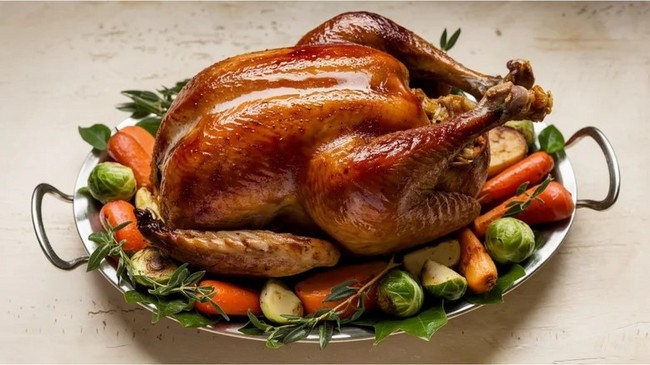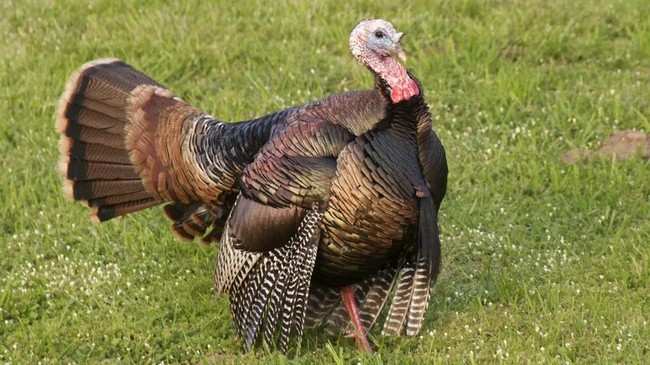✕



✕

Tag:turkey facts 2024-11-07 09:12

SYED IBAD RM/Shutterstock
We have Turkish delight, Turkish coffee, Turkish eggs, and ... turkey. But does the latter have anything to do with the nation famous for its beaches, tulip fields, and ancient art? The poultry we know as the turkey has a fascinating history, with a name reflecting a case of mistaken identity rooted in early trade and exploration. When Spanish explorers first encountered the turkey in the Americas (modern-day Mexico) during the 16th century, they incorrectly assumed it was related to the African guinea fowl, a bird that had already been introduced to Europe through Ottoman trade routes. Europeans, familiar with the guinea fowl as a "Turkey cock" or "Turkey hen" due to its arrival via Ottoman territories (often referred to simply as "Turkey"), inadvertently linked the American bird to the same name.
In reality, the American turkey was indigenous to North and Central America, where it was a staple of Indigenous diets. The Aztecs had domesticated turkeys in what is now Mexico hundreds of years before Europeans arrived.
However, the turkey's journey to Europe would add yet another layer of complexity to its etymology. Spanish conquistadors brought the colorful bird back from their New World expeditions, where it was known as "guajolote" in Nahuatl, the primary language of the Aztecs. Nonetheless, many Europeans continued to call it "Turkey cock" and "Turkey hen" due to their awareness of the Ottoman trade.
The real answer: technically, neither

Hal Beral/Getty Images
The turkey's name isn't directly tied to the country of Turkey; the appellation was accidental. By the time the American turkey reached Europe, it had already acquired the "Turkey bird" moniker due to the Ottoman-controlled trade routes and its resemblance to the guinea fowl. This journey highlights the interconnected — and sometimes erroneous — relationship between global expeditions and communication styles.
The linguistic confusion is still evident in several native tongues, despite revelation of words' and phrases' true meanings. For example, in French, the term for turkey is "dinde," which is short for "coq d'Inde" ("rooster of India") — a nod to the early misconception that the Americas were part of the Indies. Ironically, in Turkey, the bird is referred to as "hindi," implying an Indian origin, reflecting the intertwined nature of cultural perceptions and misinterpretations.
In addition to debunking the myths that eating too much poultry makes you sleepy or that white meat is always healthier than dark meat, feel free to include this false fact about turkey in your trivia repertoire. So, as you sit down to enjoy a hearty turkey dinner, tuck away a turkey sandwich, or cozy up with a bowl of turkey chili, you're partaking in a meal steeped in centuries of international lore. The bodacious bird has traveled the world as much as it now fills our plates on Thanksgiving — a tasty tradition that dates back to the mid-1800s.
Danone raises takeover offer for Lifeway Foods
Amcor markets recycle-ready solution for baked goods to maintain freshness and reduce packaging fees
Garofalo Vs Barilla: Which Pasta Is Better?
The Absolute Best And Worst Canned Fish To Buy At Aldi
12 Popular Microwave Rice Brands, Ranked
The Brazilian Spirit You Should Be Using To Marinate Grilled Chicken
About Us Terms of Service Privacy Policy Contact Us
Hotline(+86)17301604571
 Enterprise WeChat
Enterprise WeChat
for Client Service
 EZBuy
EZBuy
WeChat APP
Sinoexpo Digital Platform
Shanghai Sinoexpo Informa Markets International Exhibition Co., Ltd. All rights reserved
沪ICP备05034851号-77
 沪公网安备31010402000543号
沪公网安备31010402000543号